As you can imagine, I saw plenty of interesting cars while at Monterey Car Week, which makes sense, given the name of the week. It’s right in there: Monterey, which I believe is Old Dutch for “place of the automobile.” There were many beautiful cars there, many fascinating ones, rare ones, and I’d like to think all of them are harboring some little detail, some little secret, just hoping to be found.
I think I found a good one of those, and it’s one I really can’t quite figure out, so I do what I always do when baffled: write it up as a Cold Start and ask all of you for help. Then I get an idea for a Cold Start and hopefully an answer! We all win!
Let’s get to it; the car is a really lovely one, too, this 1935 Aston Martin Mark II Bertelli Sports Saloon:
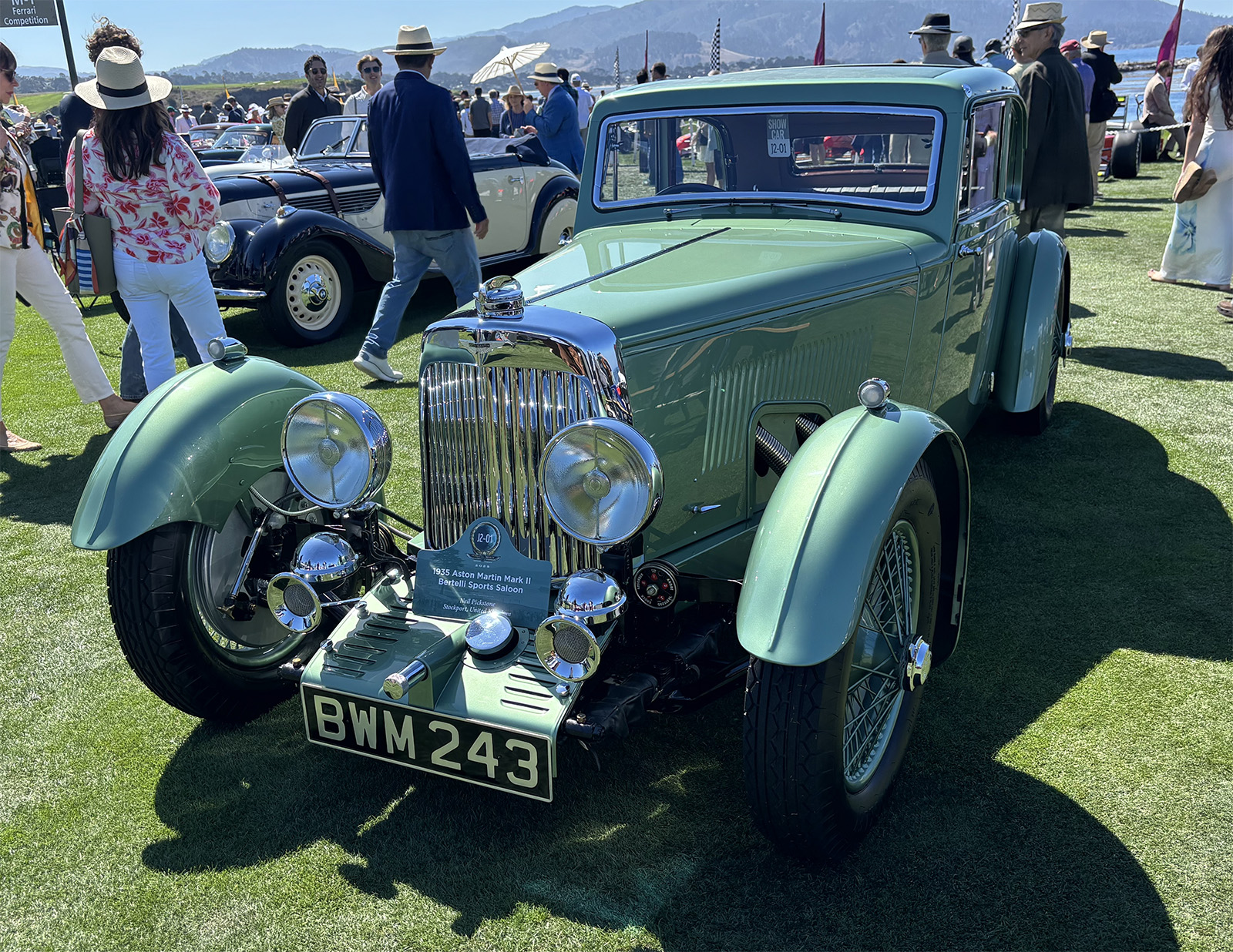
Stunning car, right? They only seem to have built 24 of these, as they cost about £700 pounds back in the day, which would be around $86,000 today, so they weren’t cheap. They were quite elegant and fast, with a 1500cc engine that made between 84 and 100 horsepower, depending on the tune, which was pretty spectacular for the mid 1930s.
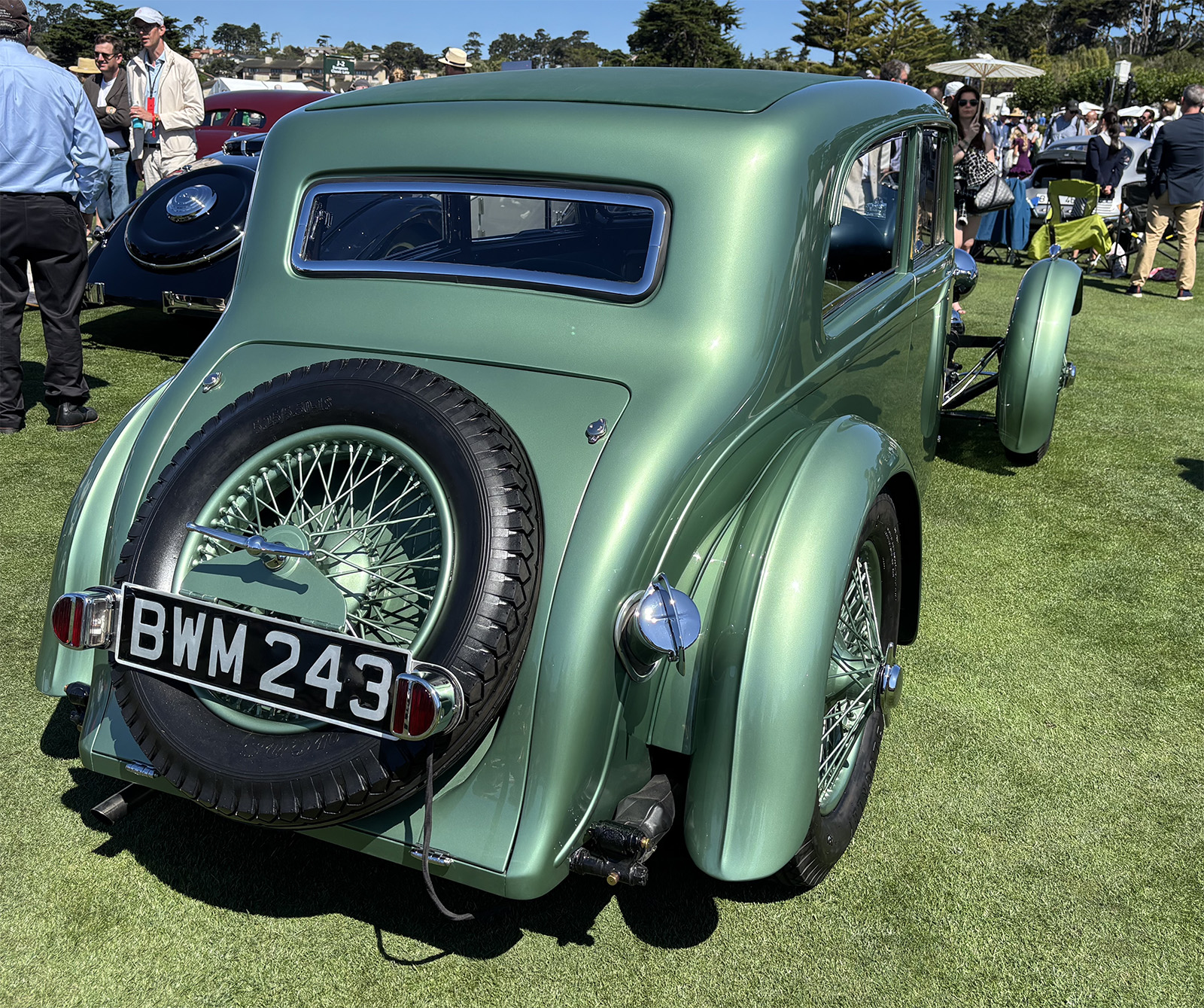
They had no running boards, those wild separate front fenders, and a very stiff chassis for the era, making them quite capable driving machines, a genuine four-seat sports car. But here’s the detail I don’t understand:
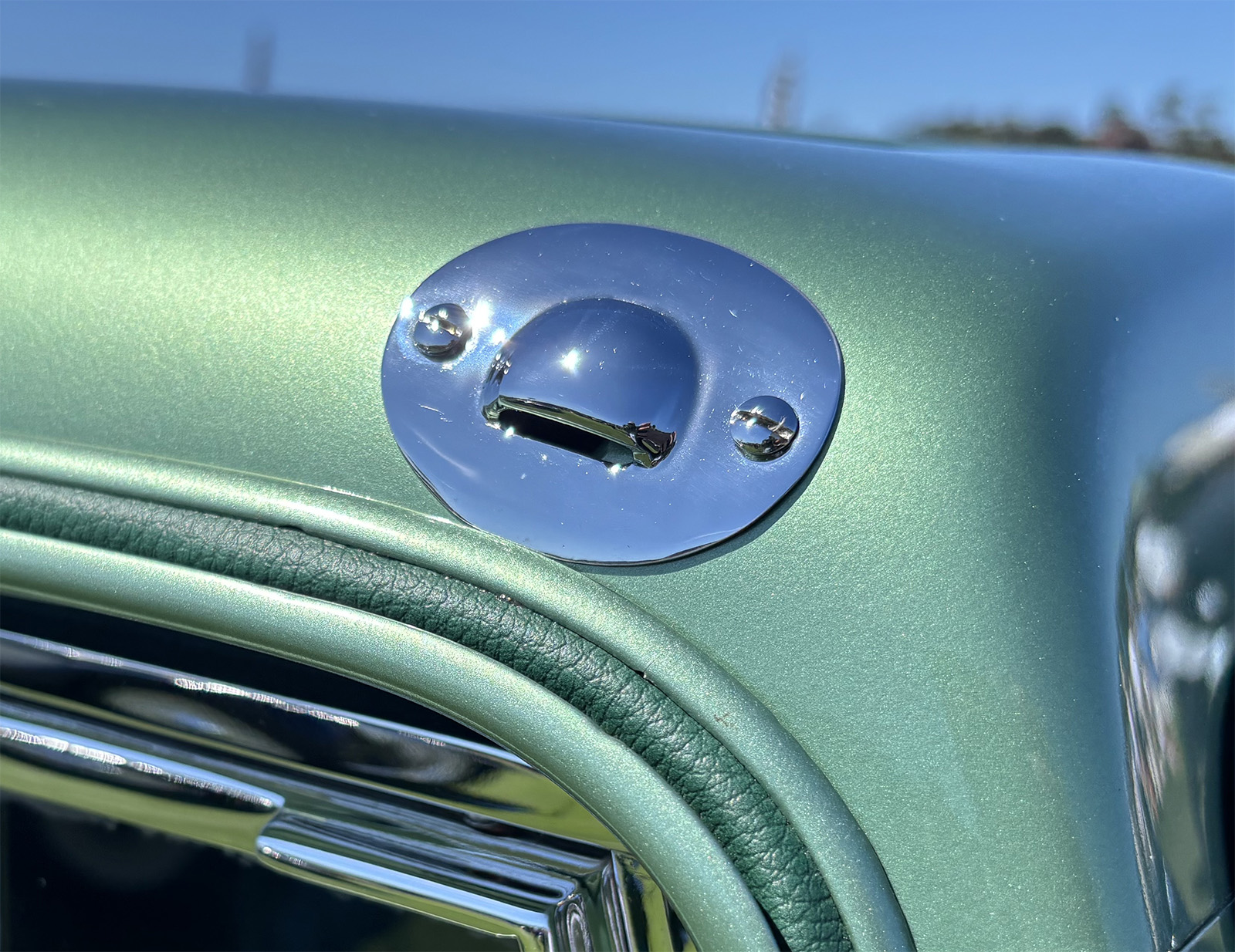
This thing. What is this thing?
It’s not unique to this car, as I can see it on other examples, like this one, if you look carefully at that corner of the roof.
Oh, while looking to confirm other Mark II Sports Saloons had this detail, I found a picture of this car prior to restoration, and, wow:
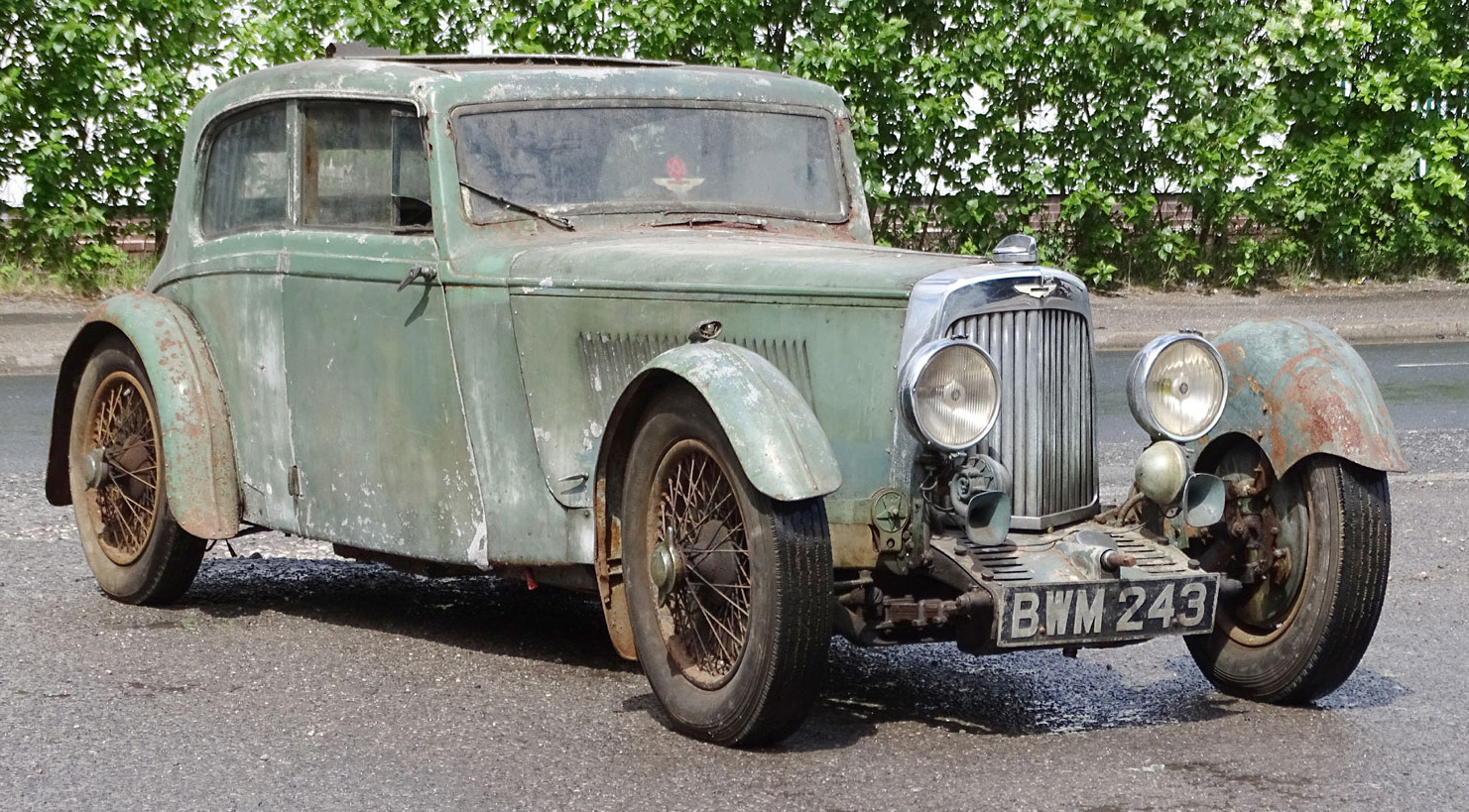
It looks like the chrome part may be missing there, but I think I see the little hole where it was mounted?
It’s just aft of the A-pillar on the roof, right above the leading upper corner of the front door. Is it a vent of some kind? If so, why? I’ve never seen a vent like that, and it looks like if it was that, it would be to expel a bit of air rather than intake any. But it’s so tiny; how much air would that thing even move? And, again, why?
Could it be a connector for something? Something maybe snaps into that little slot? If so, what? And again, why?
This is a remarkable and fantatasic-looking car, but I can’t get past that little chrome whatever screwed onto the roof. What is it? What does it do?
Help!

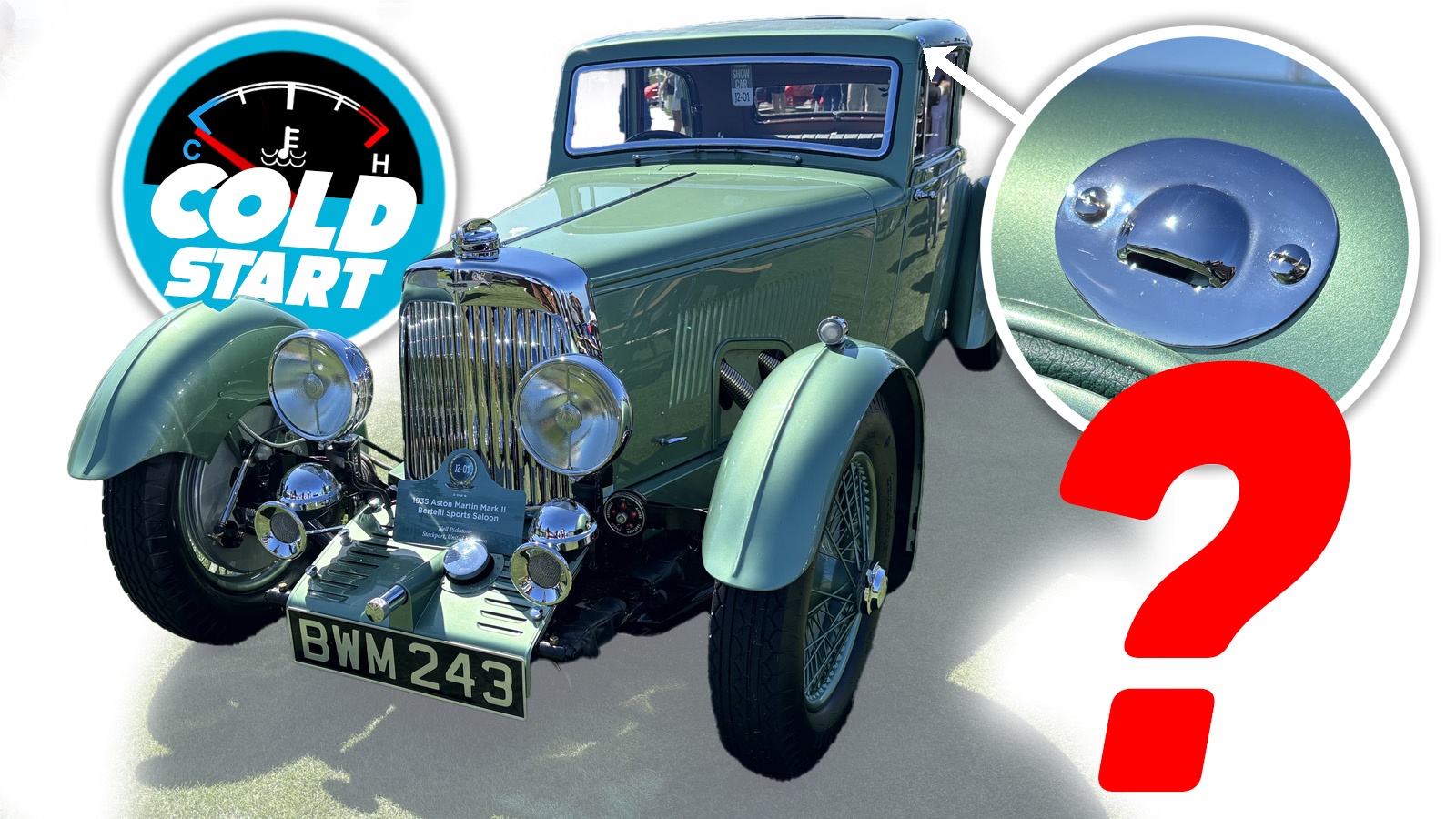






Could it be to allow a small amount of air out of the cabin as the doors are shut? It wouldn’t be the only time and automaker has done something to limit this situation. (Though could it be one of the earliest?)
Wasp hole
Are you all daft? This isn’t for letting air or water out!
This is for putting coins in! Duh, this is one of the ultra rare coin operated models. Think like those scooters downtown, but from way back in the day. It didn’t take off because of how MANY coins you had to put in that slot to use it.
This is quite perceptive. I gather the household gas meters of the day (at least in plebian households), you had to feed coins in order to keep your gas heat working.
That’s where you could spray oil to get the German Spy’s cars to spin out when they tried to pull up beside you.
1G antenna
I’m pretty sure they are weeps (in house window terms) to drain the water that gets in around the sunroof. Contrary to what many of us think, sunroofs leak all of the time; however, water doesn’t come into the cabin because there are channels between the exterior roof and headliner that send the water to be drained down the front column to under your car.
If your sunroof suddenly starts leaking, the hose line running down the column next to your front windshield is probably clogged. It is my guess that the openings in question skip the column and just drain the sunroof water right out of the roof. You will also find weeps at the bottom of the exterior window sill of replacement windows. The name come from the water draining like tears from your eyes when you are…wait for it…weeping.
.
.
You beat me to it. I was going to say the same.
Sunroof normally drain from all 4 corners and come out underneath the car. Only having 1 on the front directly in the airstream would be very ineffective. It also looks very high up.
This is a weep answer.
(And a good answer)
Stiff ride indeed. Look at how thick those front leaf springs are. No need for a roll bar. I’ve seen large trucks with less front spring.
I love fenders like those, always have. Can’t even say why, just do.
Indeed. When function, beauty, and grace become one.
These guys can supply a replacement part so they or know what it is.
https://ecuriebertelli.com/workshop/parts
info@ecuriebertelli.com
I tried to track this down, but one interesting thing I learned was that this is the first Aston Martin to have that particular shade of green paint on it.
I don’t think it is a vent, it would catch water and direct it into the car, rotting the wood frame in the bodywork.
1935 M.G. PA Airline Coupes have similar fittings, and I have seen them on other cars of that era. The coachwork may be the same builder, chassis and bodywork were purchased separately back then.
I always assumed they were attachment points for something that clipped on, like luggage or something.
Hypno-Toad.
All hail the hypnotoad
OK, down the rabbit hole!!
All those saying vents or drains of some kind; the paint seems visible through the slot, so I think this is a superficial part.
This Morris has four:
and this one:
Rear view mirrors are shown on the Morris 10 without using this clip..
Still going down the hole
OK, more clues, on the Morris 8 (I’m telling you, Morris is the key!!) they disappear post war..
It’s a bottle opener.
Bottle opener?